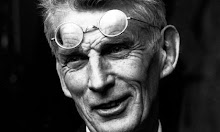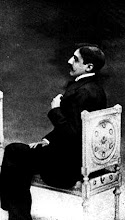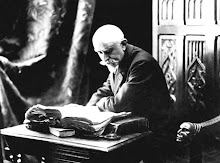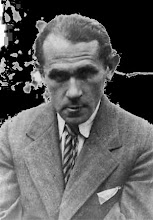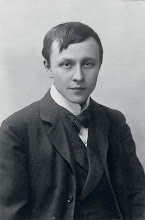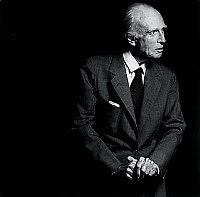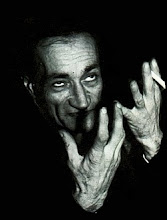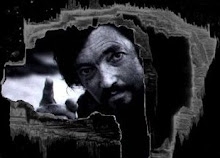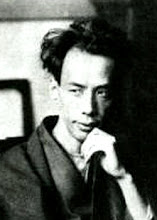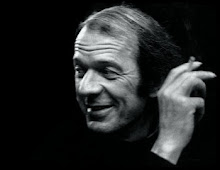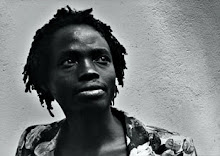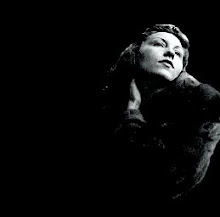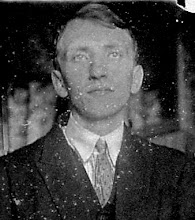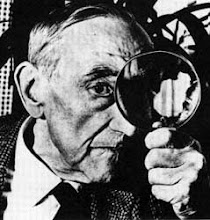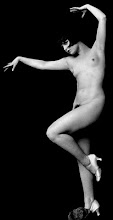Hello All ...
Some recent self-aggrandizement from Houellebecq prompts me to repost this 12 year old review of his book about Lovecraft, which was originally posted to the Modern Word website.
***
Michel
Houellebecq’s H.P. Lovecraft Against the World, Against Life
Michael
Cisco
Houellebecq’s book is a
work of passion and intelligence, but like any caricature, it throws
certain of its subject’s traits into distinct relief only by
distorting the bigger picture.
Biographers are afforded a
limited license to dramatize their subject’s lives, the reader
understanding that phrases like “Shelley threw down his pen and
...” are plausible inventions at best. Whether Shelley sets or
throws down his pen isn’t a momentous question, but persistent
novelization in a biography runs the risk of falsification. The risk
is worth taking, because there is at stake the chance one might
successfully conjure something out of the past. And that risk comes
with the territory when one is assembling a narrative out of a
collection of facts.
It’s a truism that
biographers tend to write about others by writing about themselves,
and this is a legitimate approach when there is an affinity or
spontaneous similarity of orientation of author and subject. But any
biographer taking this approach is pretty certain to fall into the
trap posed by superficial resemblances between her own point of view
and her subject’s, and take too much for granted.
This happens even in the
most scrupulous biographies, and is so much the more prevalent in
Houellebecq’s impatient and sloppy treatment of Lovecraft. The end
notes inform us that many of Houellebecq’s quotations from
Lovecraft cannot be traced, and that even Houellebecq himself is
unable to account for them. These dubious quotes seem more
attributable to misremembrance and inattention than to anything so
actually calculating or malevolent as fraud, but it is strange the
editor should treat so lightly what is actually a serious
misrepresentation of the subject. No one has any good reason to take
these untraceable quotes seriously.
Houellebecq assimilates
Lovecraft much as Baudelaire assimilated Poe before him; perhaps
this is why he gives himself leave to speak improvisationally for
Lovecraft. Before anyone condemns this too heartily, it should be
noted that many writers have felt the yen to write their own
Lovecraftian stories, and this is Houellebecq’s irresponsible way
of doing the same thing. He wouldn’t write a Lovecraftian story,
but he would write a Lovecraftian addition to Paris Spleen.
While French critics like Blanchot have raised scrupulousness and
patience to an even excessively fine art, Houellebecq’s
contraptional essay nevertheless takes a characteristically French
approach. All is well as long as the reader understands that the
author, taking his own bias – and the inevitability of bias - into
account, will employ haphazard exaggerations and sweeping
generalizations as a way of being honest about his own attitudes.
Bias, to this way of thinking, is point of view, and must be
acknowledged in the execution, or more correctly the performance, of
the work. This is opposed to the more cautious, dissertational style
of Anglo-American critics, who transform themselves into general
speakers so as not to make too many big generalizations. The one
shows his cards by ironic delivery, the other by carefully clearing
the air.
Most of the points
Houellebecq makes are partially sound but disintegrate in zealous
overstatement. Others fail to gain any traction at all because they
are mere extrapolations from a stereotype of the poete maudit. The
essay dates from 1991, meaning Houellebecq could not have had
recourse to Joshi’s biography, but this does not wholly explain why
he should depict Lovecraft’s life-changing 1908 breakdown as the
recoiling of an aristocrat from the vomitory ignominy of the
bourgeois world. Joshi has plausibly argued that Lovecraft’s
initial crisis was less a discovery of horror in the world around
him, and more the collapse of his self-esteem resulting from the
disappointment of his ambition to become an astronomer. (Apparently,
he was surprisingly inept at mathematics.) Houellebecq later
acknowledges the extent to which Lovecraft was oppressed by the sense
of his own failure, but he doesn’t connect this to 1908. In fact,
Houellebecq’s treatment of Lovecraft is not as imbalanced as it may
appear on cursory reading, because many of his hyperboles and
sweeping generalities are eventually qualified after another twenty
or thirty pages.
The discussion of
Lovecraft’s opinion of Freud is bungled. Houellebecq is in such a
hurry he gets all his terms mixed up. He mistakes Lovecraft’s
indifference to sex for hostility to sex, he conflates sex itself as
subject in general with the popular treatment of sexual subjects at
the time, and he crudely reduces sex tout court to anything having
anything to do with Freud. So Freud = sex and Lovecraft is anti-sex
(there is no intermediate, asexual position entertained here) and
therefore anti-Freud etc. etc. Houellebecq keeps lunging crazily
across the poles. Lovecraft, we are told, mentioned Freud a few
times without being especially critical of him, but it is clear we
are meant by Houellebecq to understand that Lovecraft ultimately
dismissed Freud in a slighting, offhanded, reductive manner more
typical of Houellebecq than Lovecraft. We are told that Lovecraft
summed Freud up in two words ... no, he didn’t. According to
Joshi, Lovecraft probably never actually read Freud, making his
evaluation of Freud of less moment anyway, but whenever Lovecraft did
discuss him in his letters, the assessment was thoughtful and
well-balanced. Most of Lovecraft’s criticism, at least where race
was not concerned, had this measured, judiciously thorough quality.
Houellebecq has been rightly
praised for emphasizing Lovecraft’s racism. He is entirely right
in recognizing Lovecraft’s apprehension of competition from these
“other races,” and almost on to something here for a while, in
this passage about Lovecraft’s reaction to African-Americans:
“Their vitality, their
apparent lack of complexes or inhibitions, terrifies and repulses
him. They dance in the street, they listen to music, rhythmic music
... They talk out loud. They laugh in public. Life seems to amuse
them, which is worrying. Because life is evil.” (original
ellipsis, page 113)
Lovecraft
does seem to have been repelled by the uninhibited. It is
stereotypical to speak of black folks dancing in the street, but then
Lovecraft was dealing in stereotypes and not in experience.
Listening to music is never a problem for Lovecraft, but rhythm as
such did seem to induce anxiety for him. Adorno stupidly disapproved
of rhythmic music because he felt it was hypnotic, suppressive of
thought, and conducive to the fascistic choreography of large masses
of people; that Lovecraft often associates rhythm – particularly
low pulsing of the kind that maddens the narrator of “The Tell-Tale
Heart” – with feelings of oppression is well-spotted. Only a
truly sheltered soul, like Lovecraft’s, could have believed that
African Americans were much amused by life in the 1920’s and
1930’s, when racist violence in the US was at its worst.
When he cites the frothier
passages from the New York era as characteristic of Lovecraft’s
racism, Houellebecq doesn’t follow through any more than most other
readers have. Certainly Lovecraft hated with as much emotional
intensity as he could muster, but I would say these passages are at
least as much characterized by a joy in invective for its own sake,
so much so that I can imagine Lovecraft losing sight utterly of the
actual objects of his hatred and becoming lost in whipping up those
long chewy sentences of his. And this is typical of Lovecraft; the
object, the plot element, or what have you, is only a peg to hang the
writing from – Lovecraft’s horror is in the language or it
is nowhere.
While he profoundly
appreciates Lovecraft’s prose, and correctly repudiates the dull
condescension of many critics to his style, Houellebecq seems to have
a tin ear for Lovecraft’s bantering sense of humor, and he
sometimes takes for earnest what Lovecraft wrote in a spirit of drily
self-ironic Johnsonian pomposity. He does not discuss Lovecraft’s
preference for the shaggy-dog story form which builds, insofar as the
plot is concerned, to anti-climax, and to a punchline outlined in
italics. Much of his analysis of Lovecraft’s style, and content
for that matter, will be unrewarding to those who know Lovecraft
already.
For example, no one denies
that Lovecraft wasn’t interested in characterization; this is a
trait he shares with Poe. But it is inconsistent to say his
characters exist only to perceive, and then later to say that the
perseverance of these characters in seeking out nightmarish things to
perceive shows either obtusity or sublime courage. A cursory reading
even of only those letters actually cited by Houellebecq (the ones
that exist) shows that Lovecraft found at least one thing to admire
in his fellow humans, that being the striving after knowledge (see
Letters vol 1, page 61). Lovecraft’s characters do not
drift passively from one hideous perception to another, they actively
seek out the maddening truths that destroy them. Remember the
narrator of “The Nameless City,” crawling in total darkness
through miles of tunnel scarcely big enough to admit him, deep
beneath a trackless desert, just to discover the source of an odd
noise? Houellebecq observes that many of Lovecraft’s narrators end
up paralyzed and staring haplessly at the onset of their own
destruction, but, in his unaccountable haste to plaster everything
with the label “nihilistic,” he fails to note that this paralysis
is ambivalent, and owes something to an active desire to know which
better meets the definition of fascination than a merely passive
state. There is wish fulfillment at work all throughout the stories.
In Lovecraft’s fiction,
human beings, or at least some of them, are just intelligent enough
to apprehend the truth (or enough of the truth, which is arguably the
same thing) if not quite mentally robust enough to handle it. This
means that Lovecraft was not, for example, a strict Pyrrhonian
skeptic, when writing, because his works depended on the possibility
of certain knowledge for their effects even when that effect was the
radical destabilization of the edifice of human certainty per se.
Houellebecq only brushes against this when he notes the absence of
Todorov’s ambivalence in Lovecraft’s fiction. Although he is
quite right to note that absence, he is not when he asserts this is
basically unheard of before Lovecraft: a similar absence of doubt
can be discovered in Machen, in Blackwood, and in Bierce, to name a
few.
Likewise, Houellebecq stops
short when he insists Lovecraft regarded the world, and life, as
evil. Evil implies malice. Did Lovecraft consider human beings
significant enough to merit the malicious attention of cosmic beings?
Is Cthulhu filled with venomous hatred of mankind and a chafing
desire to torment humans, or is Cthulhu indifferent to humans, like
an avalanche or an earthquake? Where is the evil in The Shadow
Out of Time, or “Within the Walls of Eryx”? Are the Elder
Things of At the Mountains of Madness, whom the narrator
crucially calls men, evil? The shoggoths are horrible, but are they
evil? It is interesting to note that the shoggoth is a figure for
the irresponsible mob: a conglomeration of bubbles, neither distinct
nor separate, mindless muscle employed by the aristocratic,
historically-minded Elder Things chiefly for construction purposes.
When the shoggoth appears, Danforth retains some scraps of his sanity
by chanting Boston subway stops, but the shoggoth is a subway
train – it pipes, it’s covered in small lights, it’s
cylindrical and hurtles through tunnels. The shoggoths overwhelm
their former masters by crudely aping them, and specifically take
over the cities of the Elder Things – although one might be
justified in wondering for what shoggoths would need the streets and
buildings of a city. This is something like racism, but only like it
– Lovecraft is coming to anticipate the unsettling of one species
by the other in a kind of cycle that is neither good nor evil, but
indifferent ... unless it’s the indifference that is evil, but in
that case, it would be evil only from the point of view of those who
suffer for it. By the time of At the Mountains of Madness,
Lovecraft’s idea of evil seems to have crystallized into the
collusion of deliberative individuals with the forces of decay. Evil
is a matter of betraying humanity, or the status quo perhaps, to the
future.
Houellebecq does touch on,
but frustratingly fails to develop, a really interesting question
with respect to Lovecraft’s rejection of realism – since realism
presupposes it is possible to say what is and isn’t real. On the
one hand, Lovecraft is obviously a fantasist, who turns from a
stultifying, already-beyond-familiar, claustrophobically confined
reality, to dreams. The conventional realist is one who dwells on
sex and money without actually asking what sex and money are.
Naturalist novels of the Zola school must look only at the strictly
ordinary. Anything extraordinary is ruled out, and only the middle
notes of life appear. Houellebecq is at his most refreshing when he
bluntly dismisses realism as of no further use, but he might have
gone so much further.
When one contemplates the
human world of commerce and intercourse of all kinds in the broader
context of the scope of time and space, the vastness of the universe,
the evanescence of human life in the scale of cosmic time, then it is
money and sex and political horse trading which become unreal. So,
in this other sense, Lovecraft’s writing ascends to a higher
register of realism in anticipating, truly weirdly, the kinds of
questions existentialist literature will raise. In his emphasis on
Lovecraft’s mythmaking and the strange power his work has to induce
imitation and extension, Houellebecq is at his strongest and is
perhaps righter than he understands, in the sense that Lovecraft
seems actually to have created real myths instead of realist
narratives. Houellebecq says there is something about Lovecraft
that is not literary, and it seems to be that viral propensity of his
work to propagate itself.








